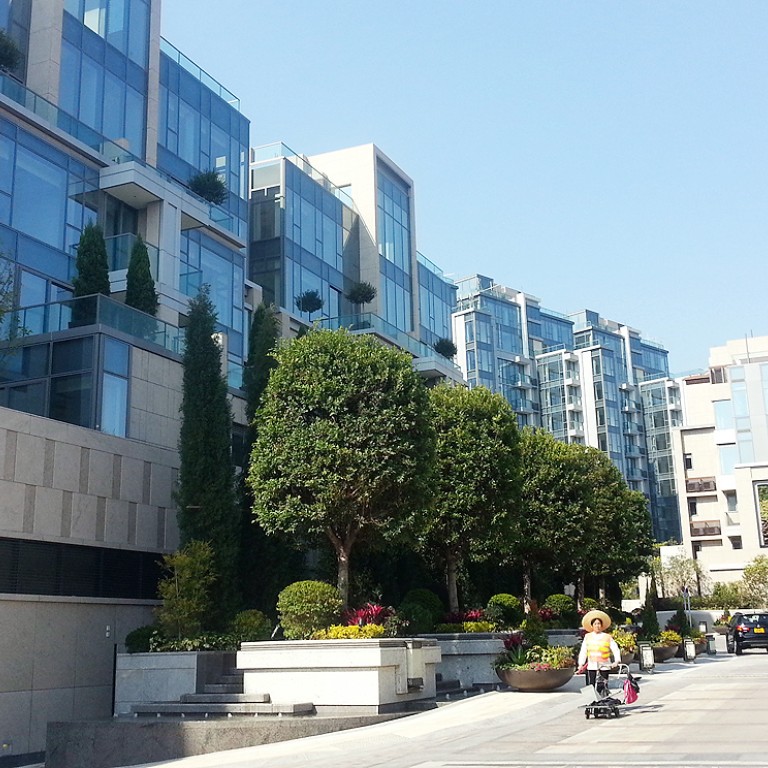
Developers may get revised guidelines urging clarity on fixed windows
Guidelines on sales tactics may be revised as it emerges that buyers may not be getting clear picture on flats with windows that don't open
Revised guidelines on sales tactics may be issued to property developers after it emerged that some could be fudging information on flats - leaving homebuyers unaware that opening their windows may mean enduring traffic noise that exceeds environmental standards.
At issue are fixed windows that developers install as one way to meet government approval criteria and buffer flat occupants against street noise.
Some windows can be opened for maintenance using removable handles, but the design is not always communicated clearly to homebuyers.
The trend towards fixed windows in new homes is set to intensify, given the government's ambition to create 470,000 new public and private flats in the next decade by building on every inch of available space - even if the homes end up next to busy highways or industrial zones.

Ng called it "a trick that can satisfy both the government and the buyers". To the government, the window cannot be opened; to the buyer, it can, by attaching a removable handle.
"Residents are the ones who will suffer," he said. "They either opt for better air flow or they're disturbed by traffic noise."
The design is a grey area in the town planning system, under which the Planning Department requires developers to satisfy the Environmental Protection Department's demands.
One of the conditions is that a flat should not be exposed to traffic noise exceeding 70 decibels.
Only when no department raises any objection do town planners approve a project.
But no system is in place to ensure developers do a good job of the mitigation measures they propose, or to hold them responsible for not honouring their promises.
More importantly, the fixed-window design is deemed acceptable by the Environmental Protection Department. When asked if the department would review the practice, a spokeswoman said fixed windows with handles were acceptable because residents could choose when they wanted the noise level reduced.
Veteran building surveyor Vincent Ho Kui-yip called the design undesirable. In homes where the windows were mostly fixed, people would have to open the balcony doors for better air flow even in bad weather, he said.
Current rules oblige developers to display fixed windows in show flats, but not through illustrations. They must also mention such windows in sales brochures, but can do so in a note.
The Sales of First-hand Residential Properties Authority, set up in April last year, said it might advise developers to specify the location of fixed windows on floor plans.
At least four estates put on the market over the past year observe the environmental rule by using fixed windows, the has found.
Immovable windows are installed in Double Cove in Ma On Shan and Riva in Yuen Long, while Trinity Towers in Cheung Sha Wan and Providence Bay in Pak Shek Kok, Tai Po, design theirs with removable handles.
All four developers had promised the town planners and lands authorities that their "fixed windows" would be closed.
In the Trinity and Providence projects, one of the approval conditions was to satisfy the authorities about the 70dB limit, the board's documents and a land lease showed.
Brochures put out by the estates say in small print that the windows can be opened only for maintenance.
That line, though inconspicuous, meets the requirement for transparency under the Residential Properties (First-hand Sales) Ordinance. But property agents for the estates told a reporter who posed as a buyer that the windows could be opened at any time.
"No one would stop you from opening windows in your home," an agent for Trinity said.
The three-tower redevelopment project is undertaken by Cheung Kong with help from the Urban Renewal Authority.
It sits near the West Kowloon Corridor, bounded by Lai Chi Kok Road, Yen Chow Street West and Yee Kuk Street.
Eighty per cent of Trinity's flats keep within the traffic-noise limit of 70dB if all the windows are closed.
The URA, in a 2007 letter, promised the Planning Department that no openable windows would face Lai Chi Kok Road in tower one - which had the most number of windows in that direction. "We can confirm that the noise compliance rate will [be] 80 per cent," the authority wrote.
But if windows facing that road could be opened, that proportion would drop to 72 per cent, an environmental assessment for the project shows.
More than a quarter of the 384 flats will then be exposed to 76dB from the traffic below, the assessment says.
Cheung Kong said the flats were constructed according to the approved plan.
In the case of Providence Bay, next to Tolo Highway, the land lease obliges the developers to submit a noise assessment report to the lands director for approval.
Developers Nan Fung Group, Sino Land and Wing Tai Asia claim in their report that the window design will help the estate achieve 100 per cent compliance with the noise standard. Pacific Bond, the company behind Providence Bay, also said the Environmental Protection Department had approved its design.

